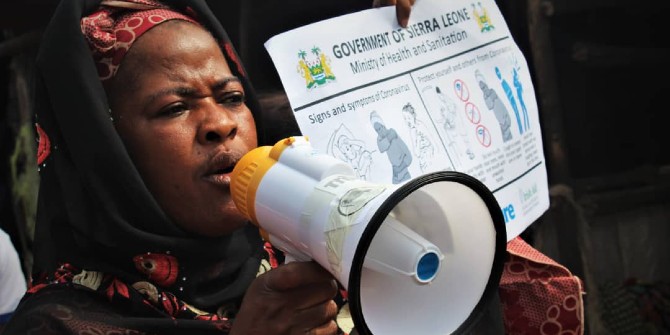
By Matthew Barlow,�� and
By May 2020, every African nation had registered cases of COVID-19. By late July, cases had . A key factor in Africa’s struggle to mount a response to the pandemic (although not the only one) is that years of debt servicing have eroded states’ capacities to build strong health systems.
Research on crisis and pandemics in different parts of the world, particularly in sub-Saharan Africa (SSA), shows that countries will respond to COVID-19 in two phases – the fiscal expansion phase, which involves a series of stimulus packages, and the fiscal contraction phase, which is characterised by austerity. In the case of COVID-19, these phases will require significant levels of financing. In a region with predominantly , debt and donor aid have become an alternative way for governments to finance state obligations. Currently is below the 60% (danger) threshold, which is way below the crisis levels of the 1980s and 1990s.
However, due to low credit ratings translating into poor interest rates. By 2018, 18 SSA countries were at of debt distress and governments made austerity cuts to public services to service their debt obligations. In 2018, 46 low-income countries — most of which are in SSA— were spending more on debt servicing than on healthcare. Annually, SSA countries were spending an average of $70 per capita on (supplemented with $10 external assistance), in contrast to $442 in China and an average of in the EU.
Sub-Saharan African debt mountains hurt women more
However, the ‘debt mountains’ that generate weak health systems in SSA affect groups differently. Women have been more adversely affected by policy responses to pandemics. To meet the demands of the 2014 West African Ebola outbreak, financing that was previously earmarked for other health services was . Other reports estimated that over 70,000 malaria cases went untreated, with disproportionately reduced.
This suspension of services became more deadly for women than the virus itself. In Sierra Leone, 3,589 people succumbed to the Ebola virus, whereas between approximately 3,593 to 4,936 new mothers and babies who would normally have survived.
Meanwhile, women are already bearing additional burdens of unpaid care work, running households and higher unemployment, because they are in the informal sector and industries decimated by lockdowns. The same trends were seen in post-Ebola Liberia where (from 18.8%), with women making up the largest proportion.
The redirection of resources away from already weak health systems in response to COVID-19 in SSA will generate feedback effects that will hurt women’s health and their access to health services. Early indicators suggest that the cutbacks in maternal care during the current pandemic could claim the lives of up to . For instance, donor organisations including the EU are working with NGOs to existing development funds that would otherwise have been spent on education towards the COVID-19 response. NGOs emphasise that available finance is inadequate in addressing the scale of the problem, and .
Very few international NGOs supporting SSA countries are receiving new financial support from international donors, even though the region is recognised as one of the critical areas that needs extra support. With less aid, debt will become the primary option to fund the pandemic response. By May 2020, African finance ministers had already $100bn in debt to finance the COVID-19 response.
In the initial aftermath of the COVID-19 outbreak in SSA, there has been a raft of different financing responses by different types of organisations. Although women are recognised as being a vulnerable group, financing policies are unlikely to adequately match the rhetoric. The and the have increased lending capacity and have offered moratoriums on debt liabilities which were due this year. However, private creditors have not followed suit and debt write-offs are not part of this relief package. Current pathways only offer deferrals and more debt. So far, creditors such as the G20 have been increasingly to extend debt relief to SSA countries – and consequently it is estimated that $11.3bn of IMF aid earmarked for pandemic response has been to debt servicing by 28 countries across the Global South.
When healthcare is cut, women suffer
Previous responses to pandemics and crises have recognised that debt is a significant barrier to recovery. For example, were redesigned to be more flexible to favour developing countries, e.g. through reduced . Yet governments still cut spending on healthcare. In response to COVID-19, the IMF has also approved debt relief for several SSA countries (e.g. ). But generating stronger health systems without compromising women’s health requires debt repayment options that avoid disproportionately placing this burden on women. This does not mean, though, that debt relief through write-offs should be discounted from COVID-19 responses.
The pandemic will probably reverse progress towards the UN’s Sustainable Development Goals. Increasing national debt levels now and imposing austerity measures later will exacerbate inequalities and poverty, and further reduce SSA countries’ capacity to support women’s health. This means that COVID-19 responses which use debt as a tool have to show they recognise how debt relief and austerity measures affect women and other marginalised groups. As the African Union argues, all responses must adopt a ‘gendered lens at every step of the way. Countries and processes that meaningfully engage women and girls in responding to these issues are more relevant, effective and sustainable’.